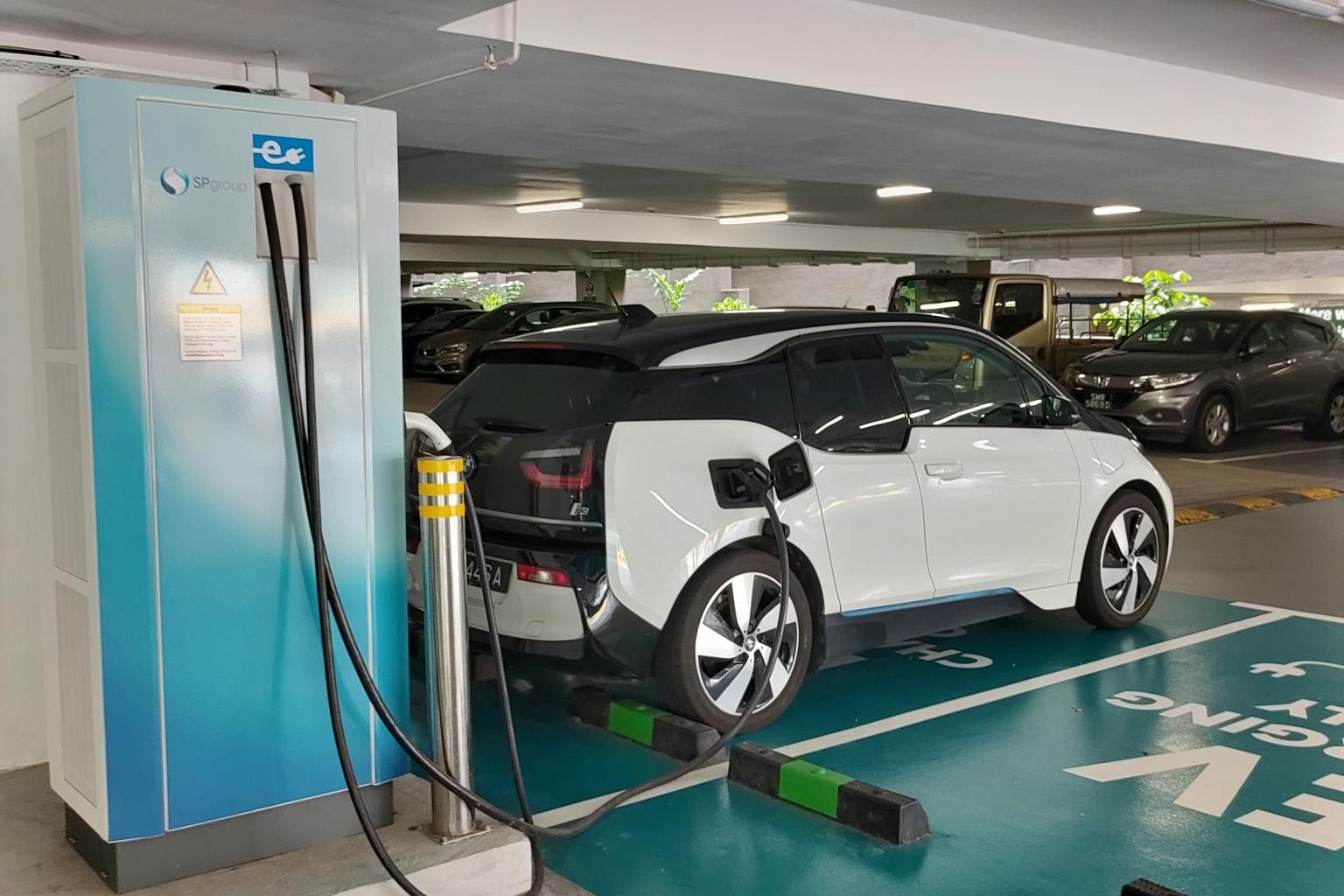All trams in Singapore Zoo, Jurong Bird Park to run on electricity; Mandai carpark to have 30 electric vehicle chargers
SINGAPORE – All trams at the Singapore Zoo, River Safari, Night Safari and Jurong Bird Park will be converted to run on electricity by the end of the year, as Wildlife Reserves Singapore (WRS) makes a major commitment to reduce its carbon emissions through more sustainable transport.
The move will affect 30 trams in total – 24 in WRS’ three Mandai parks and six at Jurong Bird Park. Already, 80 per cent – or 24 – are running on electricity rather than petrol, a shift that has reduced the annual carbon footprint for trams by 24 per cent.
WRS said it has set itself the goal of converting its entire internal fleet, including vans, lorries, buggies and tow tractors, to an electric one by 2025. It is also working with external operators who run shuttle bus services to WRS parks to use only electric buses by the same year.
Dr Lee Hui Mien, vice-president for sustainable solutions at Mandai Park Development, told The Straits Times last week: “As a wildlife organisation, through consumption and what we buy for the precinct, we hope that making more sustainable choices will help in reducing deforestation.
“Electric trams also mean we have cleaner air in our parks. Our staff can smell the difference and so can our guests.”
Tram rides at WRS parks are a key attraction for visitors, taking them to and past key highlights. They run throughout the parks’ opening hours at a regular frequency, with a maximum capacity of either 40 or 70 people depending on the park.
The WRS team first had the idea of a fully electric tram fleet in 2017, Dr Lee said, when the old diesel trams were 15 years old and due for replacement. Most of the old parts had become obsolete, leading to WRS working with its tram supplier to head in a new direction.
“There wasn’t any kind of electric tram in the market at the time. So we went to the supplier and committed to R&D (research & development),” Dr Lee said. “We wanted to integrate the battery without having to significantly change the look and feel of the trams.”
The rechargeable battery is now tucked compactly at the back of each tram’s first carriage.
The electric trams are cheaper, costing 19 per cent less than the old petrol trams at the outset. With time, they should cost comparatively even less after operational costs are taken into account, Dr Lee said.
Right now, all 84 WRS buggies and three tow tractors, as well as some of its vans, are electric. WRS is waiting for the other vans to reach the end of their life cycles before replacing them while a search for a suitable electric lorry model is ongoing.
But WRS is going beyond transforming its own vehicle fleet in the push for lower-carbon transport. Dr Lee said the WRS management believes that electric vehicles are here to stay, and so has reserved 5 per cent of all available parking lots in its public carpark in Mandai for the charging of electric vehicles.
Since November last year, it has installed 10 charging points at the multi-storey carpark. At least 20 more are set to be added, making it one of the largest public electric-vehicle charging locations in Singapore.
With electric-vehicle usage still low here, even the current 10 are underutilised, with only one vehicle being charged every day.
While acknowledging this, Dr Lee added: “We take an integrated holistic approach to transport and want to nudge and encourage guests towards more sustainable vehicles since most people drive here.
“To work towards sustainable transport, we need to address both visitors coming to Mandai as well as our on-site fleet.”
Among other ways it is seeking to reduce the carbon footprint of visitors is to increase accessibility to its parks so that another 20 per cent of its visitors can get there via public transport.
A trial to use biodiesel converted from waste cooking oil produced by its food and beverage outlets to run bus services to and from its parks is also underway.
WRS has made recent changes to be more energy-efficient and environmentally friendly in other areas of operation. Some of its animals are now eating kangaroo meat rather than beef, for example.
Since 2017, it has also ensured that the seafood that its food and beverage outlets buy are certified 100 per cent sustainable.
Join ST’s Telegram channel here and get the latest breaking news delivered to you.
Source: Read Full Article



